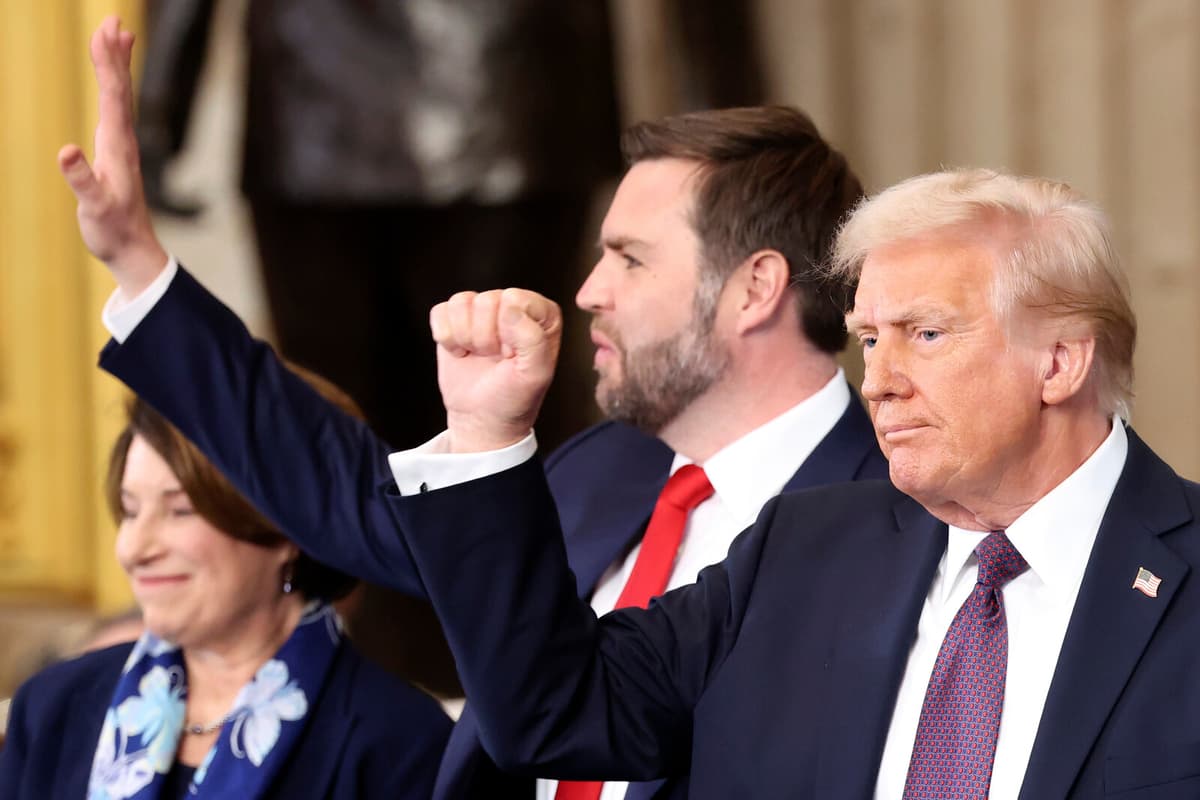And the speech contained no news, it was a checklist of everything he had talked about during the election campaign.
For Goldford, it was striking that Trump, as before, painted the development in his home country in dark colors – to highlight himself as the only one who can "fix" the problem.
He claimed that the country had gone downhill during Joe Biden's four years. That the country is broken, poor, humiliated, and not respected in the world – which is actually not true, says the political scientist who has long worked at Drake University in Des Moines.
There was no inspiration, just the usual Maga (Make America Great Again) rhetoric.
Advertisement
Few Constraints
Fredrik Bergman Evans, lawyer and expert on American law, also believes that the speech in the Capitol mainly consisted of previously known election promises.
It was certainly a more disciplined Donald Trump who returned. But this type of speech is not his strength, it's easy to see that he would rather have held it outdoors, surrounded by a large crowd of supporters.
Several of the measures that Trump presented – such as the states of emergency at the US southern border and in the energy sector – may be subject to legal review in the future, notes Bergman Evans, who is educated at Harvard University.
It is clear that Donald Trump thinks the president should have very great power. He takes big liberties in a time when he has the Republicans in a strong grip and the party has a majority in both chambers of Congress.
Advertisement
Add to that that Trump during his previous term appointed a large number of conservative federal judges.
Trump 2.0 will have a greater scope for action and the constitutional constraints, primarily the courts, will likely be more generous towards him than last time. But ahead, his power position will likely dwindle, in two years there are midterm elections and then the sitting president's party usually loses support, says Bergman Evans.
Tougher for Lincoln?
In the speech, Trump promised to fight for every American and reached out to black and Spanish-speaking voters. But the speech was more directed towards his core voters who are often white, evangelical Christians, notes Dennis Goldford.
Especially the talk about God saving him (during the summer's assassination attempt) so that he could save the country.
Advertisement
The new president was also boastful, highlighting his election victory as enormous and his own efforts in the election campaign as exceptional. Goldford particularly objects to the statement that Trump's first presidential term was tougher than anyone else's.
I can imagine that it was worse for Abraham Lincoln who abolished slavery and worked during the Civil War. But for Trump, it's all about Trump.






